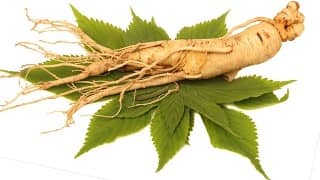
Diabetes, Symptoms and Effects
Diabetes is a disorder of metabolism that affects how the body uses glucose, the main type of sugar in the blood.
Fasting plasma glucose levels of more than 126 mg/dl on two or more tests on different days indicate diabetes.
Diabetes is generally classified into three main forms, referred to as type 1, type 2 or gestational diabetes. If you suffer from Type 2 diabetes then your body no longer produces enough insulin on demand to keep your blood glucose levels within their target range.
If untreated, diabetes can lead to serious damage to the eyes, kidney, nerves, and blood vessels. Some Type 2 diabetes symptoms include: blurry vision, slow-healing sores or cuts, itchy skin, yeast infections, nausea, fatigue, unusual weight loss, excessive thirst, dry mouth, need to urinate, numbness in hands, legs or Feet.
Fortunately, there are many herbal treatments for type 2 diabetes which are useful in lowering blood sugar levels naturally. Two species of ginseng are used in herbal remedies that can fight diabete.
Ginseng components
There are eleven distinct species of ginseng. Asian ginseng and American ginseng are two species useful in the treatment of type II diabetes. Asian ginseng (Panax ginseng) is also known as Asiatic ginseng, Chinese ginseng or Korean ginseng. American ginseng (Panax quinquefolius) is also called Canadian Ginseng, five-fingers, five-leafed ginseng or redberry.
Both American ginseng and Asian ginseng roots contain active agents called ginsenosides (or panaxosides), which are triterpene saponins. More than 20 ginsenosides have been isolated.
Ginseng Properties and Diabetes
There is some scientific evidence that both American ginseng and Asian ginseng roots possess hypoglycemic properties. A series of clinical trials and animal experiments have revealed that ginsenosides (major active components found in ginseng), exert hypoglycemic and insulin-sensitizing action.
For example, a Canadian study in 2000 found that diabetics who took 3 grams of ginseng had almost a 60% lower blood sugar level than those who did not take ginseng. Ginseng may increase insulin receptors by assisting with pancreas insulin release.
Other example: the effects of Asian ginseng given in a dosage of 100 or 200 mg per day for eight weeks were also studied in 36 persons with type 2 diabetes. This study showed improved fasting blood glucose levels.
Ginseng Dosage
To tell the truth, it is not known what doses of ginseng are safe or effective. More studies are needed to fully understand the effects of ginseng on diabetes and its effective dose to control blood sugar levels. The recommended daily dosage is 100 to 200 mg of ginseng extract once daily. Effects of ginseng in type 1 diabetes are not well studied.
Side Effects and Cautions
Panax ginseng is generally well tolerated. This herb may interact with caffeine to cause hypertension. It also may decrease the effectiveness of warfarin (Coumadin).
Contraindications to the prolonged use of Panax ginseng include acute asthma, acute infections, high blood pressure and heavy menstrual bleeding. Use ginseng during pregnancy or by nursing mothers is not recommended.
Author : Alexis ROGER
Reverse Diabetes Today + 3 FREE Bonus Books!
Here Is a Small Sample Of What You’ll. Learn When You Download Your Copy Of The Reverse Diabetes Today (TM) System Today:
- What to do and what NOT to do to normalize your blood sugar levels naturally and effectively.
- A combination of diet and lifestyle changes that will stabilize your blood sugar and keep it at a healthy level.
- How to naturally reduce your cravings for toxic foods.
- The secrets of resetting your insulin resistance and watching your diabetes fade away in weeks.
- A scientific discovery that jump-starts your body to do its natural work, which is to heal itself and restore your pancreatic function: producing enough insulin to control the level of sugar in your blood and use the glucose for energy!